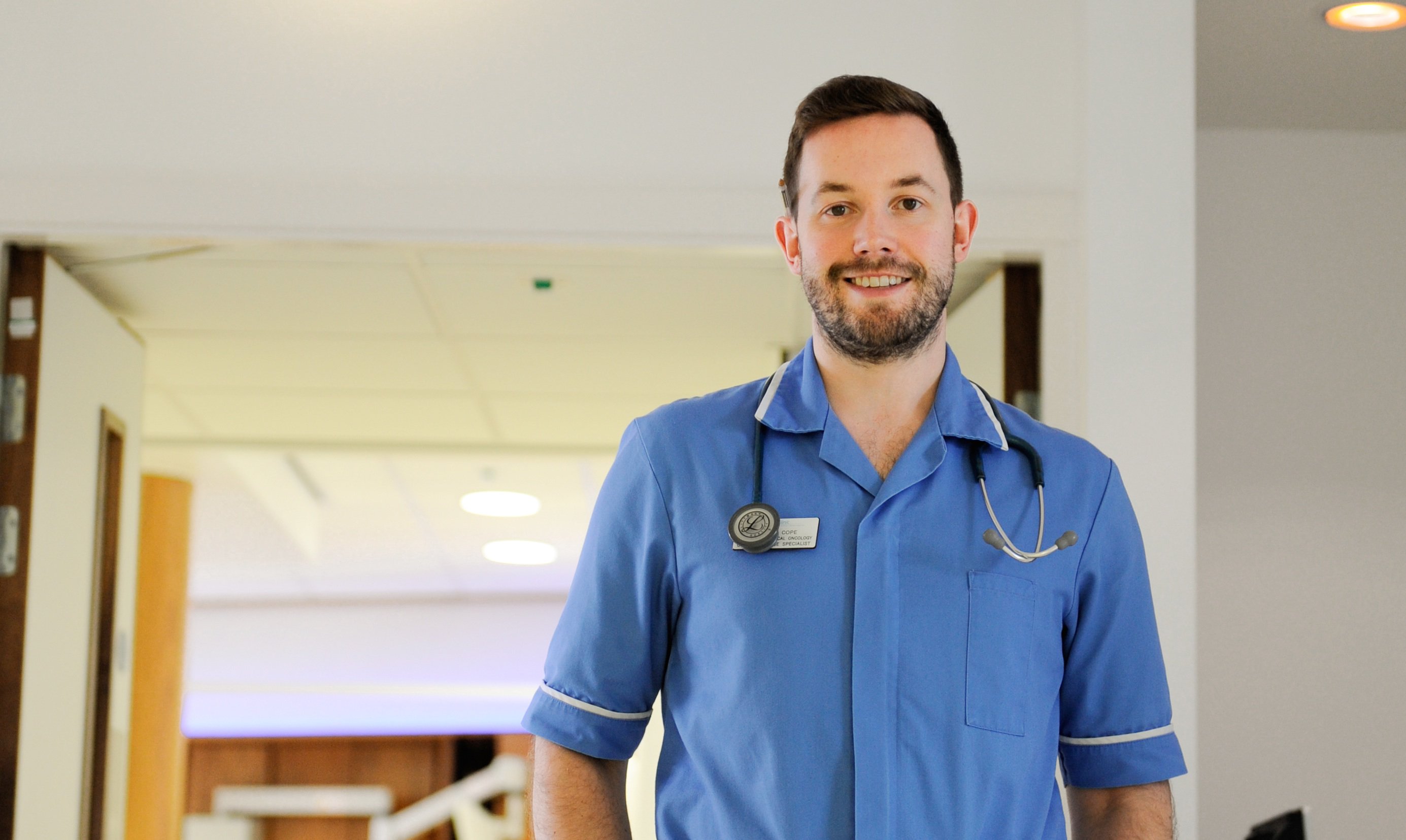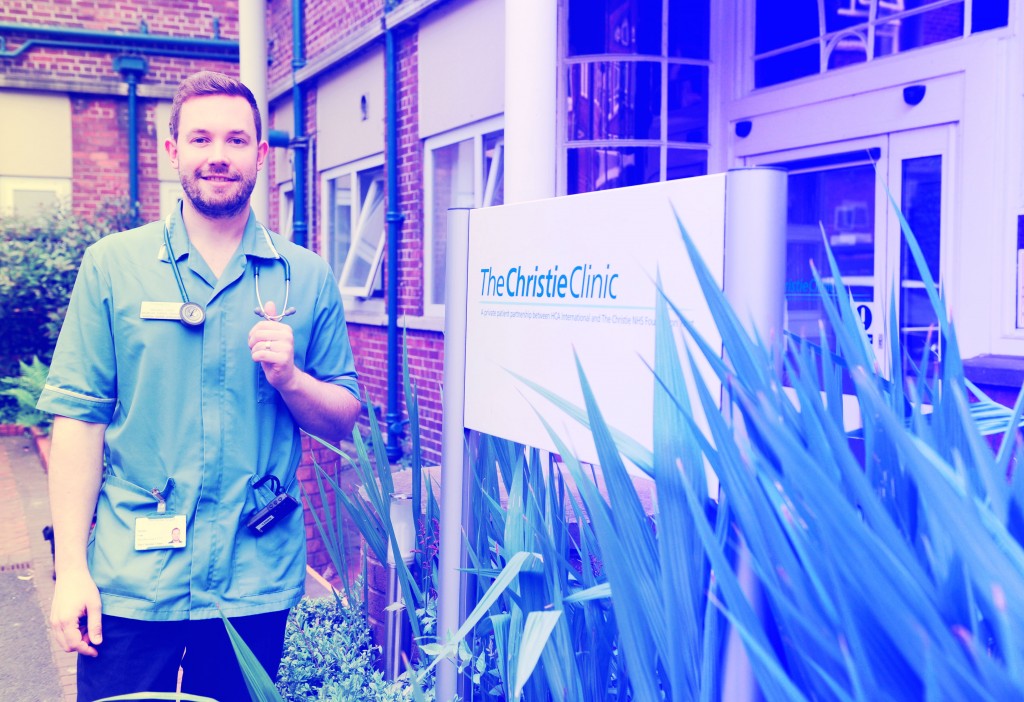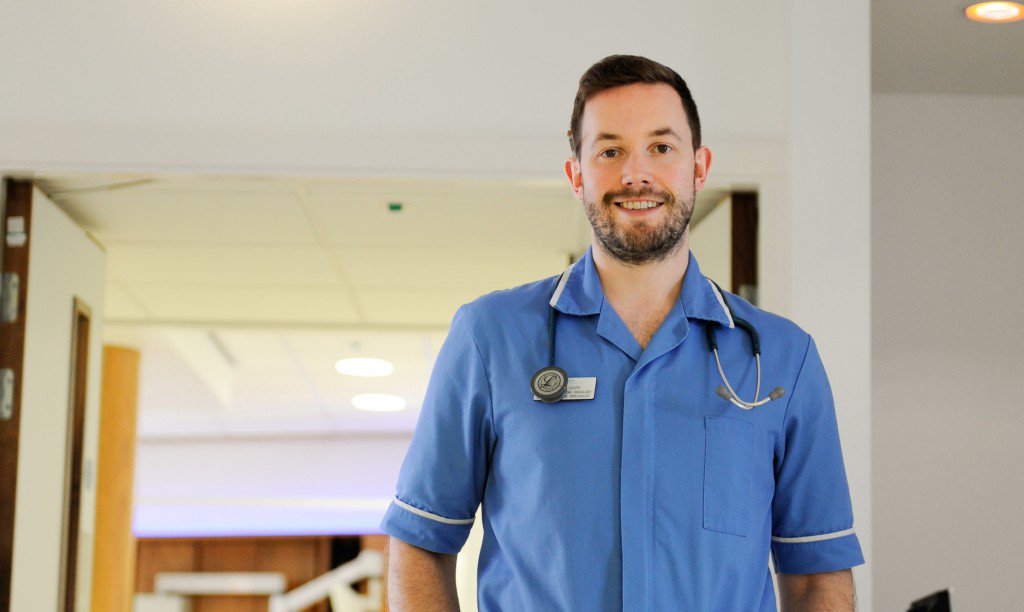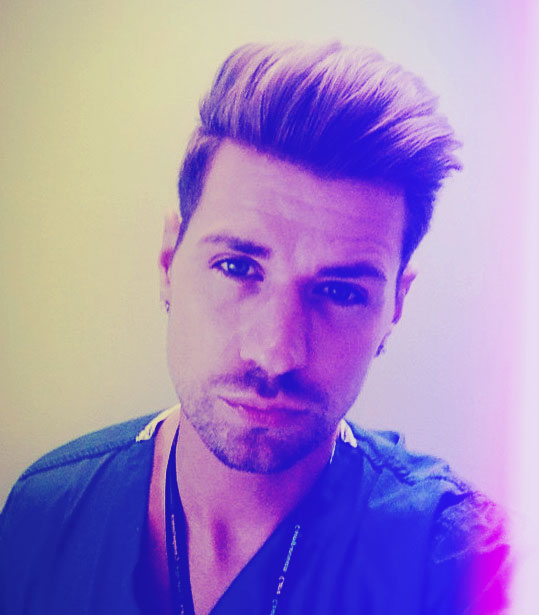A day in the life of a male nurse

Nurses have one of the toughest jobs going. Here, aTEEN meets two young gay nurses – Michael Cope and Stephen Allsopp – who reveal how, no matter how hard their jobs can be sometimes, they’re in it for the long haul.
Michael Cope (pictured below) is a surgical oncology clinical nurse specialist in Manchester.

What was it about nursing that attracted you?
I was doing a degree in Theology which was very interesting but I couldn’t find a practical application of it in terms of a career. I wanted to do something that would help people in a practical way and be worthwhile and ‘give my life meaning’, as cheesy as it sounds. Nursing presented itself as a logical choice of sorts, given that I felt I could quite easily talk to people without feeling intimidated and the thought of poo, wee and vomit didn’t bother me! I always loved the gory, blood and guts stuff on TV and my brother suggested I should be a nurse, to which I replied: ‘Ha, men can’t be nurses!’ Little did I know…
What was the training like?
The training was pretty full on. It isn’t like a normal university course with a nice long summer break. You’re still on placement when everyone else is finishing for holidays, and while your friends are working casually on essays, you’re working full-time placements alongside your part-time job and fitting in the essays around that too.
Did the training put you off?
The training didn’t put me off at all. I found it exciting and enjoyed exploring what was on offer in the hospital and meeting new people and working out where I would fit in. It helped me realise what areas I could see myself working in, and which ones I clearly wasn’t going to enjoy for a career. There are so many different jobs within nursing, it’s not all sick and blood, and there are some jobs where no poo is involved at all!
What was it like on your first day in a real hospital?
I remember feeling completely out of my depth, and nervous that everything I touched was going to break somehow. I’ve always used humour as a defence mechanism when I felt nervous or embarrassed, and that seemed to work well in hospital too. I seem to remember learning quickly that being in hospital is such a tense time for patients that trying to help them relax and distract them from their predicament is helpful.
Tell us about day-to-day life at the hospital in the first few weeks…
You just have to get stuck in. There’s a lot of shadowing your mentor and in a busy ward environment you quickly learn you need to be a help rather than a hindrance, so you have to learn fast. Most importantly you learn the basics of patient contact; how to take observations, what’s normal and what’s not, how to help people wash and dress and change them, communicate with them, learn what they’re going through and how you can help them and put them at ease.
What is your role now?
I’m a surgical oncology clinical nurse specialist, which focuses on the patient’s journey throughout their cancer diagnosis and treatment through to survivorship. It involves being a single point of contact throughout their journey, making sure they have all the information they need to make choices about their plan of care and providing whatever support they or their relatives might require. It’s a very privileged role being able to build relationships like that.

Do you become attached to patients?
You do, it’s impossible not to. Especially working in oncology, it’s obviously an incredibly emotive and personal time for the patients and their families and you’re there right in the centre of it too.
Is it hard when you lose patients? Can you ever harden yourself to that?
It’s a very hard experience you can’t prepare yourself for. Over time you learn how to be supportive to the patient and their family but maintain a respectful distance in order to protect yourself a bit. Even with all the experience in the world there are always going to be times when people touch your life and you become emotionally involved. You just have to allow yourself to respond, acknowledge the role you played and then pick yourself up and start again.
Are you out and open at work?
I am now yes, there’s just no stigma around it in hospitals at all. I’ve always found it to be a very safe environment to be out. I think it helped me a lot in my private life, realising being gay was normal and accepted and didn’t need to be hidden or denied, and especially that people treated you no different from anyone else. That gave me a lot of support when coming out to my family and friends.
Is there a big gay community where you work?
I’ve worked in big hospitals where there were LGBT groups but there are so many people around of all shapes and sizes, it’s like one big community, and I never felt like I needed to join a gay community. Now I’m in a smaller hospital you do get to recognise other gay healthcare workers and develop a sort of unwritten bond.
For many years it’s been said that nurses wages are low – what do you make of that?
It’s true nurses’ wages aren’t amazing and with a freeze on pay rises over the last few years – and now probably the next five to come – it’s really not fair given the amount of work you do, the long shifts, unsociable hours and undesirable tasks. The most common thing people say to you is: ‘I couldn’t do your job – you should be paid a lot more for what you do.’ But clearly that’s not appreciated by the people who set the wages!
Stephen Allsopp (pictured below) works at St Thomas’s Hospital in London.

What was it about nursing that first attracted you?
When I was about 12 I wanted to be an actor and really enjoyed watching the TV show ER! I’m not sure if it was the thrill of the actors or the thought of how great it would be saving people’s lives that got me interested, but there was something about nursing I was drawn to. I spoke to my mum who’s also trained to be a nurse, and who told me that I should do something that fulfilled me.
How did you go about finding out about getting started?
I spoke to my career advisor at school who gave me information on where to go and what grades I would need. Unfortunately I didn’t get the grades I needed, so I ended up finding a job as a healthcare assistant in a hospital. I went on to do an NVQ level 3 and then on to university to study a diploma in adult nursing.
What was the training like?
Training was best time of my life – not only meeting new people and having student drinks at a ten per cent discount, but I got to experience different areas of the hospital and meet different kinds of patients with different illness. But there was an academic side to it, where you would have to devote yourself to learn and study. But it’s all worth it and you feel such a massive achievement when you finish.
Did the training put you off in any way?
At the beginning of the course I thought I had made a big mistake and that I’d taken too much on with all the assignments and studying for exams, but I found a study group at uni where I could get support.
What was it like on your first day in a real hospital?
I remember my first shift as a student was very tough! I had been placed on a surgical ward when a patient came in as an emergency suffering from internal bleeding and was in need of a blood transfusion. The patient said she was a Jehovah’s witness and refused to have any treatment, even when we told her she desperately needed it. Sadly the patient died. It was a really sad moment and I cried.
What is your role now?
I am a clinical cardiac practitioner, where I work in the cardiac cath labs [catheterisation laboratories] in one of the best cardiac hospitals. I deal with patients coming in for procedures where they have a metal stent put in so they can have a pacemaker inserted. I also deal with people who have had heart attacks.
Do you become attached to the patients?
Yes, very much so – I love speaking to the patients, especially the elderly ones, and listening to their stories about when they were young. I worked as a district nurse, where I would visit patients in their homes and dress their wounds and I’d be so regular I would get to know them and their family. It is important to think about patient-centred care; put them in the centre and find out how they like to be treated and what’s best for them during their care.
Do you take work home?
I do sometimes think about a patient who was been poorly that day and think if they are okay. You have to learn to switch off and have a life outside of work.
It must be hard losing patients…
Yes, it’s very hard, because you have to try your best to save them – as long as you know you have done everything you could. There are times you have to prepare the patients after they died, cleaning them up and making them presentable for the family to say goodbye. It’s tough, but each time you do it, it gets easier to handle death.
Are you out and open at work?
I am out and proud at work, I feel there’s nothing to hide and in the NHS they have support groups for gay, lesbian and transgender people. They offer practical advice about how to meet the needs of lesbian, gay and bisexual people for NHS staff. There’s a staff forum where we can meet regularly to discuss key issues and initiatives to support our LGBT staff at the trust and also organise social events. St Thomas’s is only 15 minutes from Soho which is where we meet for social drinks.
Are you angry that nurses’ wages are low?
They are ridiculously low; we save lives and we are under-paid. And you get footballers on £150,000 a week for kicking the ball around and our lovely government gave the nurses a one per cent pay rise – whoop whoop.
What do you want to do next?
I’d like to continue nursing and move up the ladder, my next step is to become a tissue viability nurse where I’d specialise in wound care.
This feature first appeared in issue three of aTEEN, Attitude’s digital mag specifically for young gay men. You can download the issue from Pocketmags.com/ATEEN.
